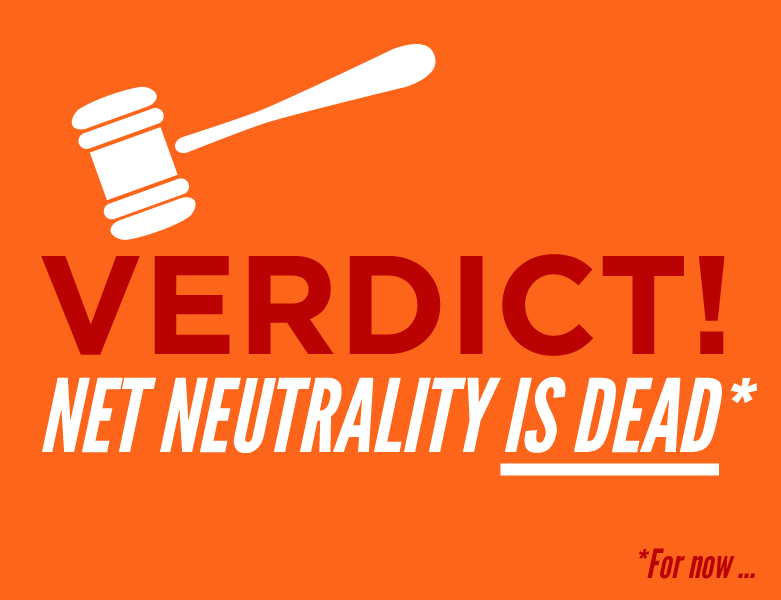The End of Net Neutrality?
 For nearly two decades, the Internet has been an extraordinarily unique (and largely unregulated) marketplace, considered to be the foundation of the digital age. However, three recent developments have put its quasi-essential element, net neutrality–the premise that all users receive equal access/delivery of data, services, or applications over the Internet–in jeopardy. Net neutrality has long been a heavily debated topic, and if the first quarter of 2014 is any indication, it's just heating up. Has big business finally won out over the "owned by no one and everyone" spirit of the Internet? Below are three issues that have catapulted the Net Neutrality debate back into media headlines this year:
For nearly two decades, the Internet has been an extraordinarily unique (and largely unregulated) marketplace, considered to be the foundation of the digital age. However, three recent developments have put its quasi-essential element, net neutrality–the premise that all users receive equal access/delivery of data, services, or applications over the Internet–in jeopardy. Net neutrality has long been a heavily debated topic, and if the first quarter of 2014 is any indication, it's just heating up. Has big business finally won out over the "owned by no one and everyone" spirit of the Internet? Below are three issues that have catapulted the Net Neutrality debate back into media headlines this year:
- On January 14th, the Court of Appeals for the D.C. Circuit ruled in Verizon Communications Inc. v. Federal Communications Commission that the FCC has no authority to enforce Internet Service Providers to be neutral in their restrictions on bandwidth. Hailed as a victory for the cable broadband industry, the decision allows companies like Comcast and Verizon, to essentially pick winners and losers. Without restrictions, content providers could, in theory, be forced to pay telecom giants large sums for faster/more favorable service. Such a model would likely affect the everyday user, who could eventually end up paying more in the long run to offset the costs. There's even concern that such free reign among cable/broadband providers could influence the content we actually see.
- In February, Netflix agreed to pay Comcast, the largest cable/broadband provider in the country, for faster and more reliable delivery of its streaming service to customers. Reportedly, the speed of Netflix's content to subscribers had dropped by 25 percent over the past few months, resulting in frustrating delays for customers. Rather than try to continue routing its traffic through 'middleman' companies, Netflix decided to strike a deal that would allow it to connect directly to Comcast's pipes. Officially, the deal is different from "paid prioritization," as Netflix won't receive preferential network treatment. Regardless, it still raises eyebrows given that Netflix drives one third of all U.S. web traffic and Comcast could soon control access to 35 percent of broadband subscribers if the Time Warner merger passes.
- Last week, The Wall Street Journal reported that Apple and Comcast are exploring the idea of building an Apple TV streaming service, kept separate from other Internet traffic to ensure that users don't experience the delays that have plagued Netflix. As consumers increasingly prefer the Internet over traditional cable to watch TV, Apple is looking to capitalize on that trend, giving users who stream live and on-demand programming an even better experience. While the talks between Apple and Comcast are in the very early stages, the potential implications are resounding. If Apple ends up paying for priority access to Comcast's subscribers, it could set a precedent regarding how content providers will have to pay for access to customers of Comcast, and other telecom companies.
Why does net neutrality matter? The end of Net Neutrality would likely change the Internet as we know it, for better or for worse–depending on who you speak to. In sum, companies like Comcast could win the ability to charge content providers and even individuals an extra fee for faster service, transforming the "information superhighway" into a toll road. If Net Neutrality is in fact disappearing, the Internet economy will be in for a fundamental power shift. Is Net Neutrality dead, or will the Internet remain on an even playing field? ![]()
